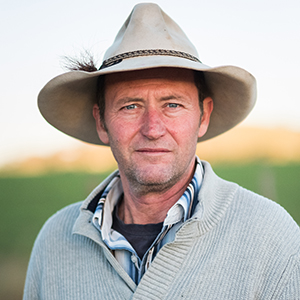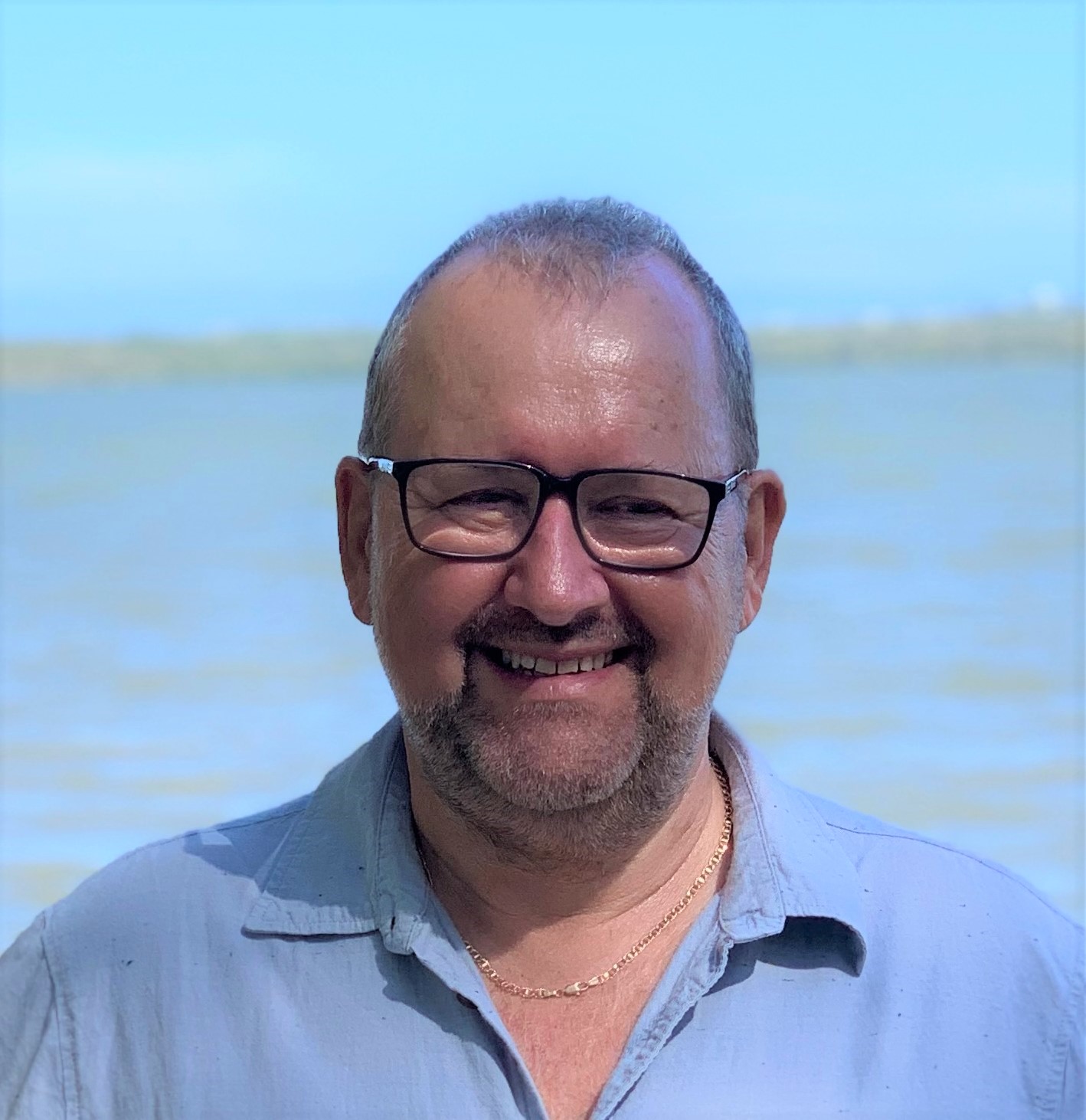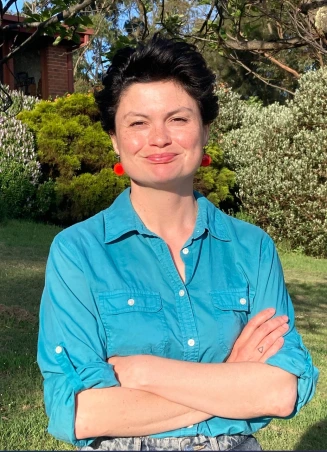The Institute of Australian Geographers Inc. Conference 2022
Landscapes of change, challenge and creativity
Hosted by the Department of Geography and Planning, UNE
July 5-8, 2022

The 2022 IAG Conference at UNE is an opportunity to showcase and share creative approaches to geographical research and praxis that tackle the challenges we all face.
Armidale CBD,
NSW, Australia
Landscapes of change, challenge and creativity The notion of landscape has intermittently served as a central organising theme in geography for close to a century, often being prefixed with adjectives such as 'cultural', 'social', 'natural', 'economic' or 'fluvial' to denote a particular epistemological or pedagogical standpoint or approach. In geography scholarship, landscapes refer not just to expanses of physical territory but incorporate the commingling of human societies and the physical environment within a more-or-less circumscribed space. The distinctiveness of a landscape comes from the co-creative and dynamic activities of humans and non-human natures in the production of space, to paraphrase Lefebvre. Thinking about landscapes as “both material and discursive mediator(s) of cultural values” (Wylie, 2007, 191) – however defined – enables us to recognise the multilayered and interwoven forces and processes that have shaped and continue to mould the diverse physical and human geographies that we work in and with. Given the challenges, threats and, of course, opportunities that living in the age of the Anthropocene poses, we feel it is time to reassert the material and imaginative possibilities of integrated thought and action in the generation of just and sustainable futures. In terms of the rest of the conference theme, 'change' is omnipresent. It can be seen as a threat as in the current existential threats posed by anthropogenic climate change. But behavioural change is also obviously necessary to achieve social, economic and environmental justice, so change can be positive. This combined noun and verb also reminds us to attend to the nature of change: to the importance of rigour in the measurement and understanding of dynamics. 'Challenge' recognises that we live in challenging times and spaces across a variety of fronts, from the geopolitical, economic, ecological to the existential. The term also reminds us that many of our established ways of thinking and acting in the world are no longer 'fit for purpose', are just plain unsustainable and are increasingly under challenge from competing ideas and movements (witness the recent global protest movements regarding climate change and extinction). As practitioners of geography we must also recognise that our discipline faces a number of challenges, not least of which is a continuing lack of presence and identity among the broader public and reflected in, inter alia, difficulties in attracting secondary students to study the subject. 'Creativity' is a recognition that, in an optimistic sense, challenges can be a spur to hitherto unorthodox responses to major concerns. Creativity embodies a sense of hopefulness in our abilities to envision and enact solutions; in the truest sense of scientific endeavour it is a trait that is borne out of experimentation, trial and error and never giving up. In these senses, we see the 2020 IAG Conference at UNE as an opportunity to showcase and share creative approaches to research and praxis that tackle the challenges we all face. Wylie, J. 2007 Landscape, Routledge, London. Bernie Shakeshaft Bernie’s vision is for a country where disadvantaged youth have the support, opportunities and community connections they need to participate in society in a meaningful way. With over 25 years’ experience working with some of the most disadvantaged young people in rural Australia, Bernie certainly knows a thing or two about what it takes to make real impact and achieve life-changing results for young people. Determined to turn his vision into a reality, Bernie founded BackTrack – an innovative program helping young people break the cycle of abuse, family dislocation, drug or alcohol abuse. Based on the simple premise of mateship, a sense of belonging and a sense of purpose, Bernie started BackTrack with nothing except the determination to make a real difference. BackTrack fills critical service gaps that currently exist in rural communities and works to address a range of social problems, including alternatives to lockup, education for kids disengaged from the education system, safe accommodation for homeless young people, pathways to reengage with community and achieve real life skills and pathways to employment. Bernie has witnessed the growth of so many young people in the community and as he says, “For confirmation that BackTrack works, trot down to the Shed anytime and look into the faces of our champion young people, and prepare to be inspired…” Bernie was recently awarded the 2020 NSW Australian of the Year in the Local Hero category. Memories of Thin Places: The Deep Roots of Contemporary Ecoanxiety Patrick Nunn (University of the Sunshine Coast) Today is not the first time that ecoanxiety, driven by people’s struggles with a changing climate, is spreading across the world. Understanding the nature of past ecoanxiety, the ways people rationalised and ultimately survived the impacts of multi-generational climate change, gives cause for optimism and valuable pointers for managing human futures. When landscapes change, they challenge us in often unprecedented ways for which we design creative responses. Using examples from Australia and Europe, this talk argues that the effects of long-term sea-level rise for thousands of years in the aftermath of the last ice age traumatised coastal dwellers and forced responses that can – just as today – be classed as either mitigation or adaptation. Evidence comes largely from ancient stories about submerged lands – memories of thin places – and the beliefs and practices they spawned. Remnants of these have reached us today and by repurposing or glibly dismissing them as cultural curiosities or inventions (myth and legend), we miss an opportunity to understand our distant ancestors’ encounters with a changing landscape that challenged them as profoundly as we are being challenged for similar reasons today. Land loss from rising sea level and the involuntary relocation and livelihood reconfiguration it is driving today are undeniably challenging. Realising that our ancestors ultimately overcame comparable challenges is cause for optimism. Yet understanding that the process involved was long-term, traumatising and disruptive is also instructive, showing us that our immediate future will not be as unconstrained as our recent past, that anticipatory and transformative adaptation is unavoidable, and that effective transboundary mitigation is imperative. Biography Author of more than 330 publications, including several sole-authored books, Patrick Nunn is Professor of Geography at the University of the Sunshine Coast. He worked previously at the University of New England but spent most of his academic career at the University of the South Pacific where he became immersed in the geography, history, cultures and contemporary livelihood challenges of this diverse region. By training a geographer and geologist, Patrick has crossed into several other disciplines, including climate science, archaeology and anthropology. He was awarded the Gregory Medal of the Pacific Science Association in 2003, the Gold Medal of the Royal Geographical Society of Queensland in 2018 and, in recognition of his sustained service to the Intergovernmental Panel on Climate Change (IPCC), he shared its award of the Nobel Peace Prize in 2007. His keynote address derives particularly from his research over the past decade into the longevity and plausible interpretation of ancient stories (myths and legends) and the experiences that our ancestors encoded in these which are relevant to us today and in the future. There is more information in his 2020 paper in Environmental Humanities, as well as his recent (non-academic) books The Edge of Memory (2018) and Worlds in Shadow(2021), both published by Bloomsbury. Geography education – time to enrich the landscape within and beyond the school gates Dr Susan Caldis (Macquarie School of Education, Macquarie University) Geography education sits in a dichotomous landscape where multiple challenges appear to limit its potential, yet also offer opportunities for innovation and growth. These challenges, which also present themselves as opportunities, include out-of-field teaching, and a lack of clarity about the distinctiveness of geography. Clear empirical views across the vista of geography education are limited in an Australian context. Lived experience attests to the landscape being at once energising yet tiresome to traverse. Therefore, it is time to examine policy, literature, research, and activism to understand key aspects of the dichotomy and find ways forward to enrich the landscape of geography education in schools, initial teacher education, the professional associations and within the discipline. The decadal plan for geography shines a light on areas of concern for geography education in Australia. However, the decadal plan also illuminates potential. There is potential for geography education in schools to flourish and be strengthened through harnessing its interdisciplinary core and developing sustained connections with the academy. Empirical evidence focused on geography education in Australia is limited. Longitudinal research which examines how pre-service and early-career geography teachers respond to the experience of transitioning into the teaching profession would help develop understanding about the impact of geography methodology units and the realities facing geography teachers in schools. Such research is scarce, and my recent doctoral study addresses this gap in the literature. Findings from my doctoral study together with outcomes of activism in professional associations form the foundation of this keynote address. Research findings pinpoint the dichotomies facing pre-service and early-career geography teachers together with the tensions around teaching geography in schools. For example, the high rate of out-of-field teaching occurring amongst pre-service and early-career geography teachers was a significant finding in an Australian context, especially when these teachers are also ‘positioned as knowers’ and responsible for mentoring colleagues about how to teach geography. Research findings also highlight important components of a geography methodology unit that were instrumental in shaping the practice of future geography teachers. Such findings will greatly enhance the quality and design of geography methodology units and potentially provide a blueprint from which future methodology units can be developed which may increase provision from universities and increase candidature uptake. Recommendations from research and activism within professional associations include the development of formalised and sustained mentoring structures via school-university-professional association partnerships to help understand the dichotomy and find ways forward to enrich the landscape of geography education within and beyond the school gates. Biography Susan Caldis is a Lecturer in the Macquarie School of Education, Macquarie University. Her expertise is within geography education, most notably exploring the pedagogies best suited to the learning and teaching of geography in schools and within methodology courses in initial teacher education programs. Susan’s current research focuses on practitioner responses to out-of-field teaching in geography, and she is the sole geography education researcher in a multi-university research collective. Prior to commencing doctoral studies, Susan was a geography teacher, moving into school-based leadership and then national curriculum development roles for geography. Susan’s thesis was a qualitative, longitudinal study focused on the transformation of pedagogical practice amongst pre-service teachers of geography as they transitioned into the teaching profession and entered their early-career years. The thesis was noted by an examiner as having a novel methodology and focus which makes a significant contribution to the literature in geography education and was ranked in the Top 5% of all theses examined. During her doctoral candidature, Susan received a Faculty Award for Excellence in Higher Degree Research and she was hosted in Singapore by the Academy of Singapore Teachers as the Outstanding Educator In Residence for geographical education. Susan is an influential advocate for geography education and involved in actioning selected recommendations from Geography: Shaping Australia’s Future. Between 2020 – 2022, Susan was appointed as a STEM Ambassador for geographical education, where she progressed dialogue between stakeholders about the visibility and contribution of geography in the STEM field. Susan is also known for her active and sustained involvement in the leadership of professional associations. She is currently Chair of the Australian Geography Teachers Association, and President of the Geography Teachers Association of NSW & ACT. In recent years, Susan received the Award for Outstanding Service to the Profession in recognition of her long-term involvement with and active contribution to professional associations. Dr Gemma Sou (RMIT University) Over the last decade, there have been many calls for researchers of climate change and disasters to become better at visual storytelling. Visual storytelling has intuitive appeal that can make sense of the world in ways that are more accessible than hefty IPCC reports or academic articles that are locked behind steep pay walls. Yet, geographers who turn to visual stories as a vehicle for research communication must grapple with critical questions about how and by whom the visual is created, curated, seen, felt, absorbed, interpreted and so on. Visual research communication also raises questions about the production of knowledge, including how the world is engaged with through the senses. In this lecture I will draw on my own experience of creative research translation to discuss the ethics, praxis, and politics of communicating climate change-focused research into comics. I aim to demonstrate how the combination of geographical research on the everyday experiences of climate change and the ‘technology’ of comics is well positioned to produce compelling stories that provoke us to reconsider several dominant commonplaces about people and places experiencing climate change, and to challenge notions that visuality stands for a second-tier literacy. Comics can facilitate researchers to distil complex ideas into engaging and accessible formats; to increase the participatory nature of research; to enable researchers to innovatively communicate the hidden, intangible and temporal experiences of people living with climate change; and to challenge orientalist and ‘damaged-centred’ frameworks that can dominate public and academic discourses. Understanding and responding to the changing climate will require recognizing and engaging multiple, diverse experiences of agency, a process that attention to comics can help facilitate. Biography In 2020 Gemma Sou began a Vice Chancellor’s Fellowship at RMIT University. Prior to this she was Lecturer at the University of Manchester. Gemma draws on postcolonial discourse to explore human-environment relations. She has a particular interest in development in disaster-affected contexts, everyday lived experiences of disasters, the media representation of disasters, and creative research translation. Most of her work has focused on South America and the Caribbean region. She regularly works with artists to produce creative representations of the people she speaks to in her research. More details can be found at www.gemmasou.com In 2019, Gemma created a comic, ‘After Maria: Everyday recovery from disaster’ based on her ethnographic research that explored how Puerto Rican families recovered from Hurricane Maria, which devastated the Caribbean island in 2017. In July 2022 she will officially launch a second comic, ‘Living with Climate Change’, which is a collaboration between Dr Gina Ziervogel (University of Cape Town), Dr Adeeba Risha (BRAC Bangladesh), the illustrator Cat Sims and the Geography Teachers Association of Victoria. This second comic visualises their qualitative research about how low-income families experience and adapt to climate change in Bangladesh, South Africa, Bolivia, Puerto Rico and Barbuda. The comic innovatively threads together their research to form one global story of ‘living with climate change’. Abstracts of no more then 1,500 characters (c. 250 words) can be submitted by clicking the link below and following the instructions. Before doing that please check the session proposals below to see which session you would like to give your paper in. Then nominate that session via the pull-down menu before you add your abstract text. If your paper does not fit any particular session just choose 'general geography' in the pull-down menu. We will create sessions out of the pool of such abstracts. Abstract submission cut-off: May 31st | Acceptance of abstracts: 3rd June
Founder & CEO, BackTrack Youth Works

Invited Wiley Lecture
 Telling ‘graphic’ stories about climate change: ethics, politics and praxis of research as comics
Telling ‘graphic’ stories about climate change: ethics, politics and praxis of research as comics
The conference will be held July 5-7, 2022 in the Armidale CBD.
- Monday 4 July: Postgraduate presentations and development day
- Tuesday 5 July: Day 1 of Conference: Academic papers, plenary addresses, welcome reception
- Wednesday 6 July: Day 2 of Conference: Academic papers, plenary addresses, conference dinner and awards
- Thursday 7 July: Day 3 of Conference: Academic papers, plenary addresses, closing
- Friday 8 July: Spillover day and field trips
Travel to Armidale
Armidale is Anaiwan Country, and the Anaiwan share custodianship of these lands with the Gumbaynggirr, Dunghutti and Kamilaroi nations.
We pay our respect to all of their Elders: past, present and emerging.
Welcome to Anaiwan Country
Daŋgana ndaga? Nyaŋa ndaga waŋan?
[How are you? What brings you here?]
If you would like to explore the region, visit the Armidale Tourism website.
Conference venue: Armidale Bowling Club and NOVA SMART Region Incubator.
Travel information: For travel to and around Armidale please consult Travelling To Armidale
Getting around Armidale
Taxis — Armidale Cabs offers a taxi service throughout Armidale and Uralla. The phone number is 131 008. A fare from the airport to the CBD is approximately $25 (estimate only).
Buses — a bus service operates throughout from Armidale for $2 per trip. View the timetable.
Car — major car hire companies operate in Armidale from Armidale airport or in town.
Cycling — there are bike hire options in Armidale and cycling paths throughout much of the town. Try contacting Armidale Bicycle Centre or Bicycle Central on Marsh.
Accommodation
Accommodation is available in Armidale. There is a wide range of accommodation in Armidale to suit all budgets. Please consult the Armidale Tourist Information Centre for more information.
In Armidale town
City Centre Motel Inn in central Armidale
Rural Stay (B&B and self-contained accommodation options in Armidale)
Cotswold Gardens, 34 Marsh St, +612 6772 8222
Quality Hotel Powerhouse, 31 Marsh St, +612 6772 7788
Lindsay House, 128 Faulkner St, +612 6771 4554
Sandstock Motor Inn, 101 Dumaresq St, +612 6772 9988
Abbotsleigh Inn, 76 Barney St, +612 6772 9488
Near the airport (private transport recommended)
Moore Park Inn, 63 Moore Park Lane, +612 6772 2358
There is a wide range of accommodation in Armidale to suit all budgets. Please consult the Armidale Tourist Information Centre for more information.
For all conference enquiries, please contact:
Professor Neil Argent
Phone: +61 2 6773 2803
Email: nargent@une.edu.au
Follow the link below to register your attendance. Please note that early bird registration ends on the 31st of May.
- Waged/salaried (early bird): $240 Full registration: $340
- Student (early bird): $180 Full registration: $230
IAG Equity Statement
The IAG conference space aims to be a convivial, intellectually stimulating, inclusive, diverse, and safe space where everybody feels equally welcome. Creating such a space is the responsibility of everyone, even as we recognise that it can be quite difficult and challenging to put into practice, given complex intersections of race, Indigeneity, ethnicity, disability, gender, gender identity, sexuality, intersex status, class, caste, skin colour, age, citizenship/visa status, nationality and religion, for example. Geographers who explore place, space and scale as sites of differences, encounters, justices and progressive political imaginaries emphasise the importance of practices that create everyday equalities. Central to equality is dignity, respect, generosity, collegiality, shared responsibility and the deferral of quick judgements. During the conference be mindful of these principles as we act and engage individually and collectively in often unfamiliar environments and in passionate scholarship. Proactively watch out for those who stand on the sidelines who might feel hypervisible, invisible, hurt, unsafe, harassed or discriminated by our everyday acts and environments. It is our responsibility as geographers to come together as allies, accomplices and warriors to ensure equity, diversity and inclusion. We welcome feedback (at the time or privately) as part of our individual and disciplinary learning.
View statement as word document.

